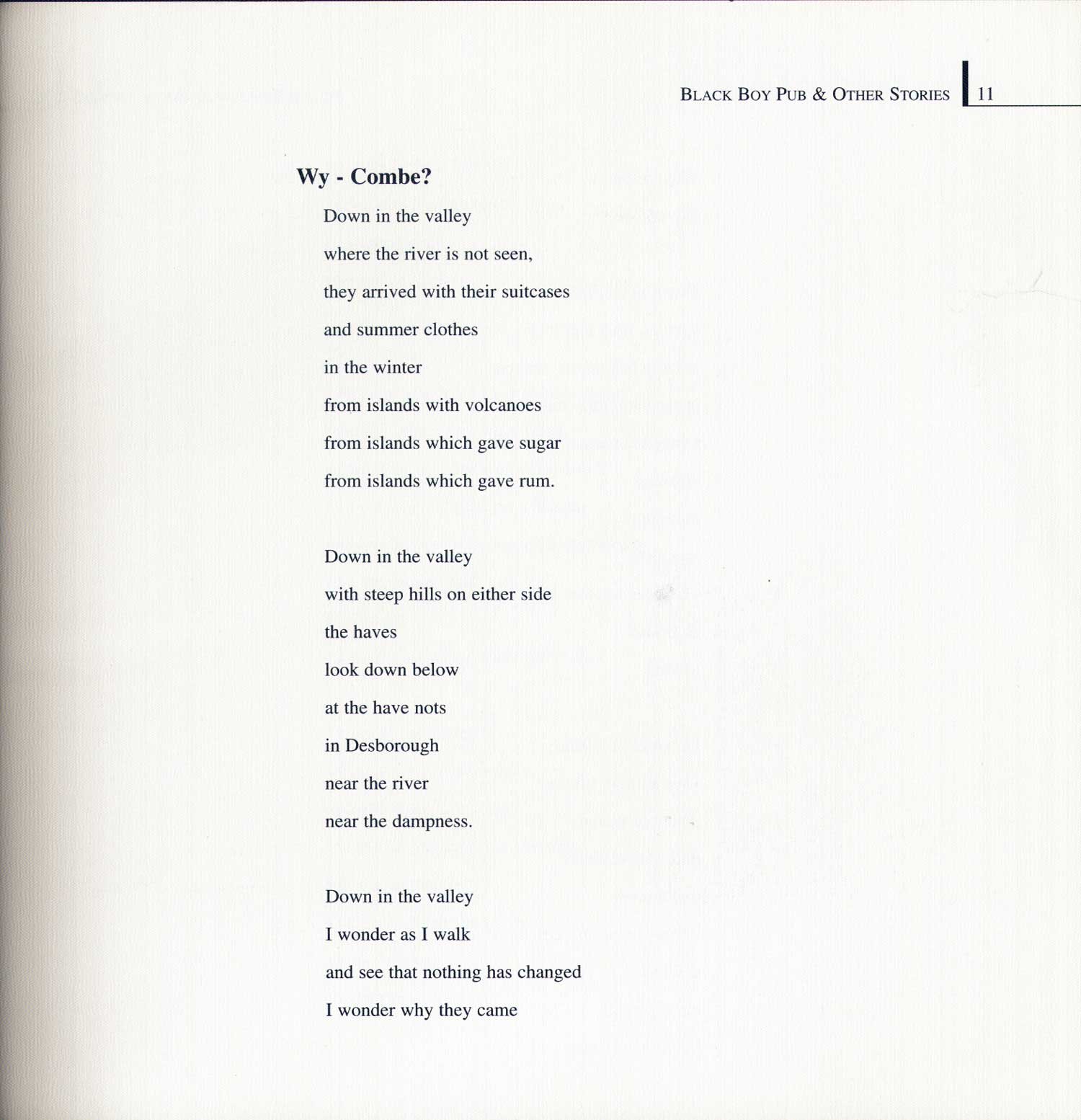The Black Boy Pub & Other Stories: The Black experience in High Wycombe
High Wycombe, a medium size town in Buckinghamshire, was settled from at least the 1950s by post-war Caribbean migrants from St Vincent and the Grenadines, and has now become the unofficial capital of the Vincentian diaspora in the UK. McMillan’s parents were married there and had four children with him the eldest. His family eventually moved to Hackney in the early 1970s. While McMillan appreciated the opportunities London offered, he always returned to High Wycombe to visit relatives and friends.
In 1996, McMillan started a year-long writer’s residency funded by Southern Arts in the town. His aim was to connect with, support and create spaces for the voices of Black writers through creative writing workshops, readings, performances and publications. With experience of working with local communities in previous residencies, he made contact with local Black community leaders, organisations and groups, as well as individuals who would ultimately contribute to an anthology he was planning to edit and compile. McMillan’s base was the Spring Gardens Arts Centre from where he posted a weekly newsletter, held events including a performance of my play Brother to Brother that was touring at the time.
In the centre of the town was a three hundred year old pub called the Black Boy, which represented a Black presence in Britain from at least that period, rather than the familiar post-war Windrush narrative. The anthology was entitled The Black Boy Pub & Other Stories: The Black experience in High Wycombe, published by Wycombe District Council, 1997, and included prose pieces and poetry from a cross-section of intergenerational writers, archive images, as well as pieces about McMillan’s experience growing up in the town. There were also oral history testimonies based on interviews carried out with Caribbean elders in the living rooms. It was a de ja vu moment: the living rooms where the interviews took place all looked the same. McMillan realised that the front room was part of him, and and therefore worth exploring creatively. The opportunity came when the Wycombe Local History & Chair Museum invited McMillan curate an exhibition, but had no money. Necessity being the mother of invention, he borrowed his mum’s crochet and ornaments and late Auntie Lorna’s upholstered three-piece suite, glass cabinet, radiogram and a picture of The Last Supper. As a rudimentary front room installation it resonated with audiences, and after subsequent iterations it came to the Geffrye Museum as The West Indian Front Room.











